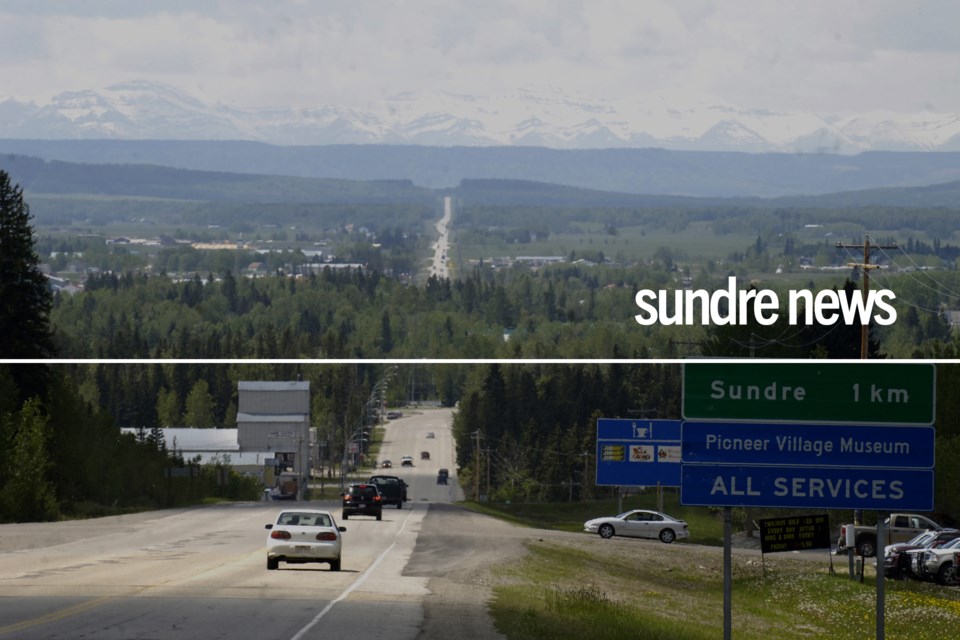“I just wonder sometimes what he’s actually talking about,” said Dr. Bill Ward, a member of the Greenwood Family Physicians clinic's team.
“I’m very wary about taking anything that’s been said at this press conference, and I’m just going to wait for the formal release before I’ll believe anything.”
On Friday, April 24, Tyler Shandro made several announcements during a live video press conference regarding physician funding changes he said are intended to improve recruitment and retention in rural Alberta.
Among the changes are the abolishment of the $60,000 cap on the Rural and Remote Northern Program; the cancellation of all proposed changes to complex modifiers; a full and permanent exemption for the changes to the overhead policy imposed on rural physicians who also practise in hospitals; and a freeze on the Medical Liability Reimbursement Program deductible for all rural and family physicians with the rate held at $1,000.
The official NDP Opposition described the health minister’s announcements in a press release as a “too-little, too-late response to the crisis in rural health care he created by ripping up the province’s contract with doctors.”
“Shandro walked back a small number of the cuts to doctor compensation he imposed on April 1, but did not restore the previous contract, or agree to independent third-party arbitration. He also failed to commit to repealing the legislation that allows him to tear up any future contract on a whim.”
During his press conference, Shandro also claimed the Alberta Medical Association had misinformed its members about the government’s previously proposed changes, blaming the organization for causing anxiety and concern.
“Many physicians were led to believe by the Alberta Medical Association that we were going to stop subsidizing their insurance,” he said.
Ward, who saw some of the conference, had choice words when asked his thoughts on Shandro’s claim that the association had disseminated misinformation.
“Quite honestly, I think that’s a total load of BS on his part,” said Ward.
With regards to medical insurance, the AMA had merely expressed concerns about cuts, he said.
“There was a reduction in their commitment to pay for our so called malpractice insurance. The obstetrics one was effectively going to be cut by $4,000,” he said, adding that would have made providing the service in a small community unfeasible.
Doctors at the Moose & Squirrel Medical Clinic were among the first to stand up and say no to the government, but there have since then been more than 40 other community clinics’ physicians who have announced their intention to resign their privileges in hospitals if the situation is not resolved, he said.
“The AMA is essentially the doctors’ voice,” he said, adding he was receiving frequent updates even during the negotiations.
“It was very much the AMA turned up, but the other party didn’t.”
From Ward’s perspective, the association had been reaching out to the government, but there was no reciprocation.
“It’s interesting, we went through the same sort of thing with the NDP. We actually sat down at the table, and saved $500 million, only nobody actually knows about that, because it was done by the doctors with negotiation with the NDP, and it didn’t damage the health service in any way,” he said.
“They (the UCP) are doing it their own sweet way and want to impose things,” but it’s the people in the service who know where and how to save money, he said.
Ward also expressed scepticism over the government’s announced changes to on-call rates for rural physicians, which will range from $20 to $23 per hour.
“They’ll actually pay more to Babylon, for using an app, than they’ll actually pay me,” he said, adding the cost for using the Telus app is $40 per communication.
Furthermore, Ward expressed concern about the app’s complete lack of continuity of care.
“To actually use Babylon as a standalone app, with no history, no back-up information, and no guarantee that history will be passed on to patient’s primary health-care giver, just seems to be remarkably shortsighted,” he said, questioning the wisdom of “paying somebody who just wants to play on the phone rather than actually look after their (patients’) health.”
Asked for his thoughts on the minister’s promises, Ward replied, “I don’t believe this until it is down in black and white and we can actually see all of the small print.”
The level of trust remains in tatters after the government’s unilateral decision to tear up the physician’s master pay agreement, which he called a “draconian” measure and a “major threat to rural medicine.”
The minister’s conference did little to allay those impressions, he said.
“Anybody who’s listened to this (issue) over a period of time, a lot of what was said (at the press conference) was totally different to what was said previously,” said Ward.
“It’s just reinforced my belief that I shouldn’t believe a politician until we actually see what’s written down and what is actually to be signed.”
On an unrelated note, the physician also wanted to remind the community that family doctors continue to serve and work with their patients, just in a slightly different way. Phone calls are being used as a screening tool before patients are physically seen as needed, he said.
“We need to make sure people are not waiting for problems to get significantly worse before we see them.”



